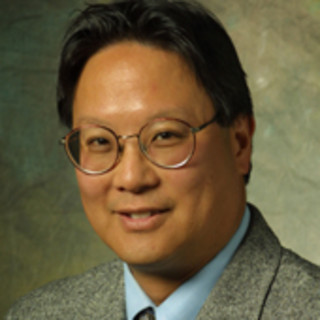A Poem by Ron Louie, MD (Part 3 of 3)
This is part of the Medical Humanities Series on Op-Med, which showcases creative work by our members. Do you have a poem, short story, creative nonfiction or visual art piece related to medicine that you'd like to share with the community? Send it to us here.

Chief complaint: "He predicts earthquakes"
Everyone working there, except the pediatrician, spoke two or more languages.
For each young patient, staff would crystallize the medical issue, a terse "chief complaint,"
using the parents' own words, on why they were bothering to see a Western doctor,
even when the children didn't, wouldn't or couldn't complain for themselves.
It's a parent's concern, via a native vernacular, through an interpreter's ear,
twisted with some medical phrasing, a flashing linguistic triple flip,
leaving the doctor to decipher the situation for clinical intervention,
one further contortion in the tumbling run, with the full expectation of a two footed landing.
And this young one predicted earthquakes. Taller and chubbier than expected,
the child hovered outside the door, apparently shy about entering the exam room,
already crowded with adults: his mother, an aunt, an interpreter and a doctor.
He reportedly described earthquakes often; his uncanny timing with the big one scared people.
He spoke no English, and hardly spoke at all, rocking, snuffling and shuffling,
sometimes whining like a wet puppy trying to open its eyes. His own eyes closed when someone spoke.
When they did open, they didn't seem to see, or maybe they were seeing too much.
Did he really use the word "earthquake", or was it "moving ground" in the language
of his family, or was it something more figurative, or did he feel dizzy, and did he hear things,
or was he trembling, perhaps having a seizure, or did he just have tingling in his toes?
This lad was "special," we all knew it; each one of us already had an interpretation.
How does one diagnose human earthquake prediction, at any level: as misconstrued,
or statistical aberration, or savant-like behavior? Or explain cultural expectations
of conduct, or communication gaps in children while using different languages,
or the deliberate limitations of a medical mindset, all whilst using fewer syllables?
So we did what we usually do, approach understanding clumsily,
not knowing if such a complaint could ever be resolved, or how,
or to whose satisfaction, or the child's wishes, with so little help to offer,
recording an uncertain prognosis, so awkward to translate, entering the clinical elements
anyway, using terms that burnish our bronzed mode of medical thinking,
closing our eyes, trying to comprehend his vision, or the way his world might move.
Citation: Louie R. Med Humanit 2017;43:e29.
doi:10.1136/medhum-2017-011227
Ron Louie, MD is a Clinical Professor of Pediatrics at the University of Washington, Seattle. He can be reached at ronlouie@u.washington.edu.
Editor's Note: Click here to read Part 1 of Dr. Louie's Three Medical Encounters series and a conversation with him on creativity and medicine. Find Part 2 here.







